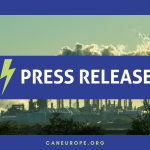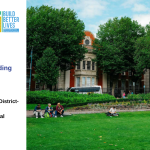On Wednesday February 27th, the European Commission departments DG Development Cooperation (DEVCO) and DG Environment (ENVI) released a joint Communication together on a post-2015 global framework for sustainable development. The Communication comes after a number of EU-wide consultations on how this framework – a follow-up to the Rio+20 summit and the current Millenium Development Goals (MDGs) – should be formatted and implemented.
CAN Europe is satisfied to see the strong support for the convergence of the two separate work streams – the UN High Level Panel on Post-2015 Development and the Open Working Group on Sustainable Development Goals (SDGs). The EU must take an active role in emphasizing that environmental sustainability is wholly conducive to poverty eradication and long-term development.
There remains a weakness in recognising our own responsibility here in the EU towards sustainable development. DGs DEVCO and ENVI need to work together to establish clear milestones and indicators in how Europe addresses its current patterns of consumption and production, both of which are energy intensive and largely unsustainable
The EU needs to learn from the shortfalls that have dominated the current development goals, in particular Goal 7 ‘Environmental Sustainability’. Ten years have passed since it was established, but there is still a stark indication that climate change has not been dealt with effectively in the MDGs. The negative impacts of climate change on marginalized and vulnerable communities, its direct links to food and water insecurity, and the setbacks it imposes, on sustainable development have barely been acknowledged. Resilience in the form of disaster risk reduction and adaptation have not been adequately adopted to ensure that climate change does not continue to undermine particular development goals.
The Communication has also overlooked the issue of energy, in particular sustainable access and security, and this needs correcting. Sustainable development, including economic security, depends on safe and long-term access to energy that stems from low carbon sources and imposes minimal environmental impacts.CAN Europe will continue to follow the process, while calling for the post-2015 framework to really consider the effects climate change will have on any future plans for sustainable development.



